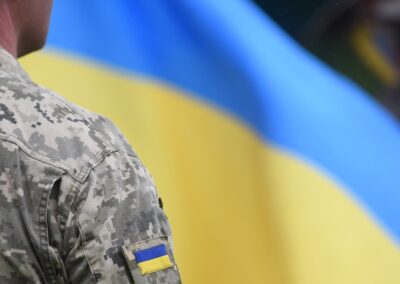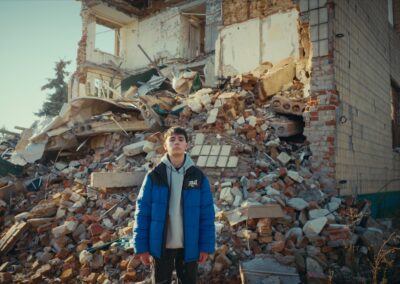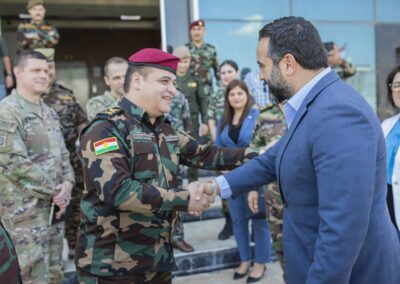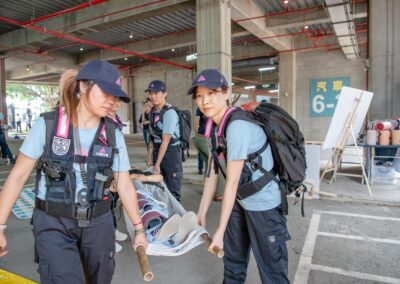Hidden Hazards: SoA teams up with Syrian NGO and US troops to help clear explosives left behind by ISIS
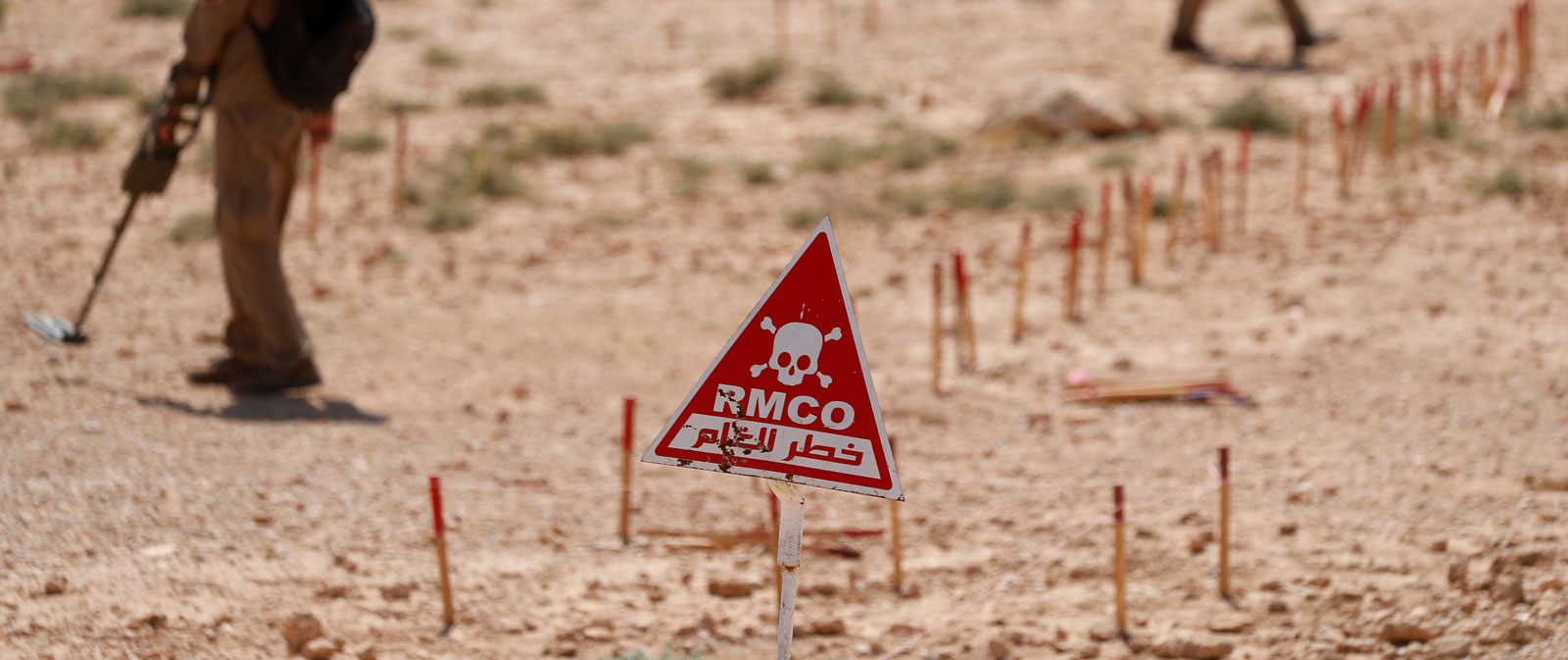
As the US military and its local partner forces rout the Islamic State, also known as ISIS, from Syria, a hidden hazard lurks, planted in fields, buried amongst the rubble, and hidden in homes awaiting their owners’ return. In the parlance of practitioners, these are referred to as explosive remnants of war (ERW), unexploded munitions such as artillery shells, bombs, grenades, mortars, and rockets that are left behind, intentionally or not, after an armed conflict. And though the legal definition of what constitutes ERW does not include them, landmines are strewn in incalculable numbers across the Syrian landscape.
During my most recent trip to northern Syria, I spent time with US Army civil affairs teams trying to understand the region’s most pressing needs and thinking of ways that SoA can promote stability and reconciliation. In Manbij, I toured the local hospital and saw firsthand the challenges of getting a medical facility back up and running after much of its equipment was smashed to pieces by retreating ISIS fighters. In Ayn Issa, roughly 30 miles north of Raqqa, the Islamic State’s recently liberated de facto capital, I learned what an arduous task it is to return civilians to their abandoned homes safely, and to normalcy.
Of the numerous barriers preventing the displaced from going back to their towns and villages, explosive hazards are likely the most troublesome. According to a report by the UN Office for the Coordination of Humanitarian Affairs (OCHA), more than six million Syrians live in areas affected by them. It is a no-win dilemma that befuddles local governments and illustrates the myriad challenges of post-ISIS Syria. Block civilians from returning to their properties, and they feel alienated. Permit their premature return and scores will inevitably be maimed or killed. Underscoring this challenge, OCHA’s report concludes that the “presence of explosive hazards not only threatens the lives and livelihoods of affected communities, but also endangers humanitarian actors seeking to provide them with aid. The associated protection risks restrict social development and hamper initial attempts at economic recovery.”
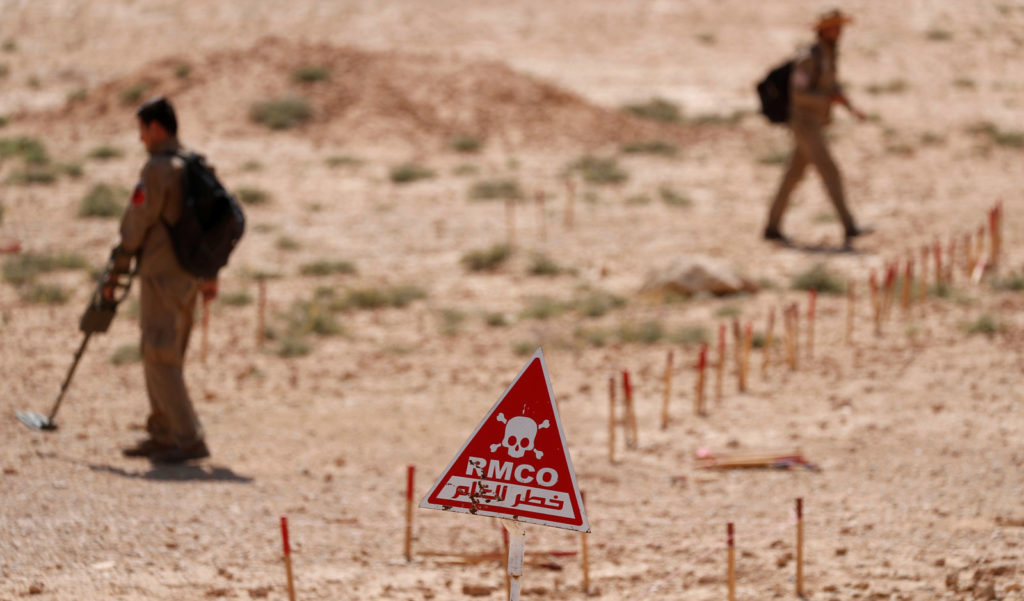 RMCO technicians clearing a field from buried explosives.
RMCO technicians clearing a field from buried explosives.
Addressing the issue is a priority for both humanitarian actors and the US military, which has a vested interest in the region’s stability. The civil affairs team showing me around Ayn Issa suggested that we assist Roj Mine Control Organization (RMCO). Over the last year, the group has cleared large swaths of land, often in areas where international organizations do not operate. Supporting RMCO’s work was a top priority for the American command. By the time my trip concluded, I shared that sense of urgency.
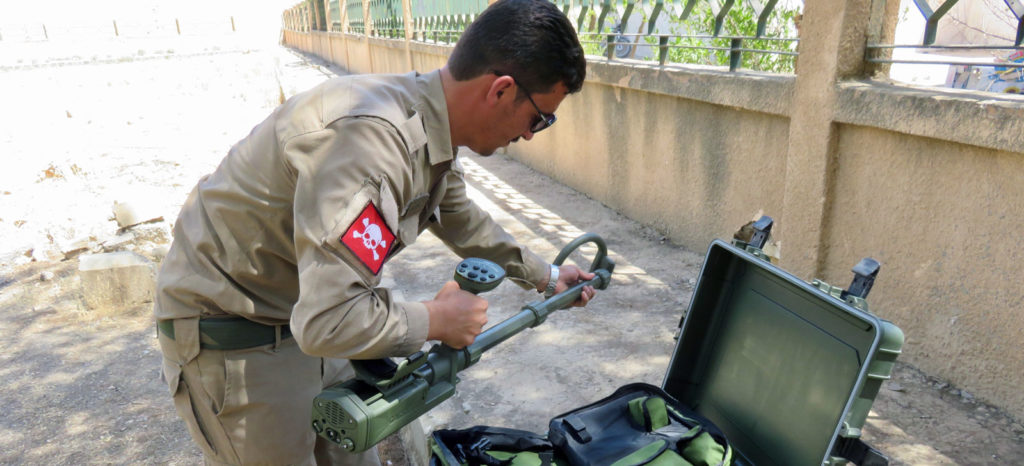
A RMCO technician assembles a Garrett metal detector provided by SoA.
We started the project before the wheels of my flight out of Syria had left the ground. The civil affairs team relayed to me a list of supplies RMCO needed to expand their operations. We then put together a robust assistance package that included 12 professional-grade Garrett metal detectors along with an assortment of engineering tools to extract buried explosives. Within weeks, RMCO’s field technicians were uncovering and dismantling bombs and mines using the equipment we provided.
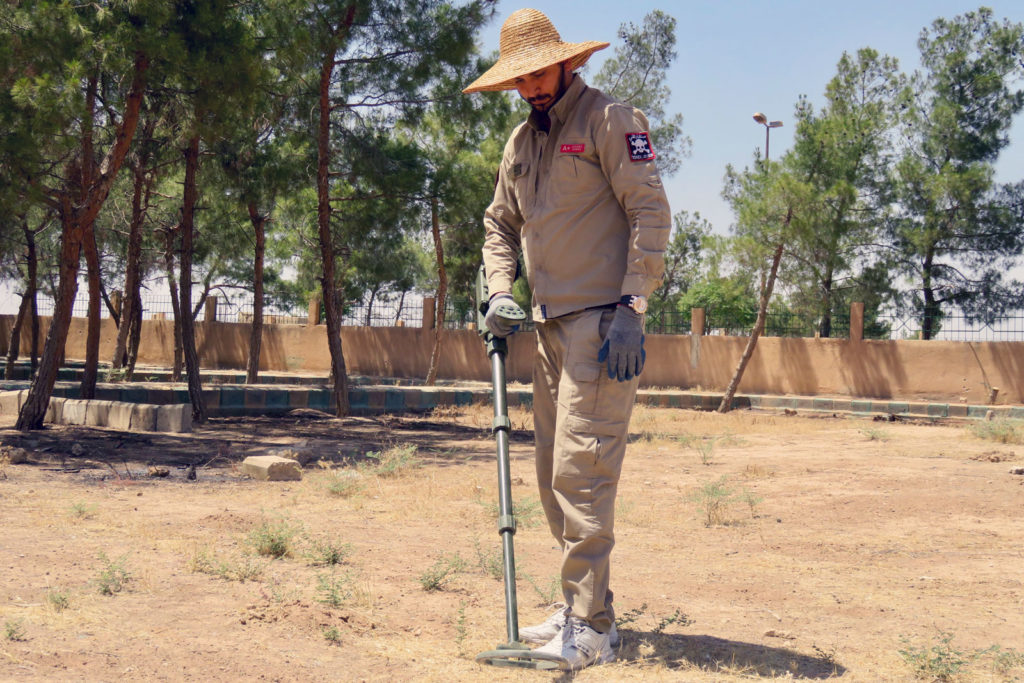
A RMCO technician familiarizes himself with one of the SoA-provided metal detectors.
One of RMCO’s managers, whom I had befriended, wrote me, “We are so grateful for your assistance. Because of Spirit of America’s help, our teams can now clear more land and properties so our people can come back to their homes and we can start rebuilding our country. Thank you.”
In international development, interventions, no matter how thoroughly conceived, are educated guesses at best — positive impact is not guaranteed. Our work with deployed US troops and RMCO is allowing civilians to safely return to their homes, and their lives. Syria’s road to normalcy will undoubtedly be long and meandering. But every explosive removed, every life saved, is a welcome step down that path.
Zack Bazzi
Middle East Project Manager


